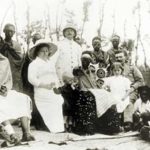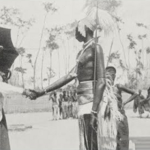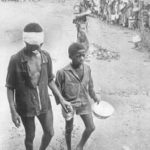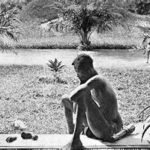Lineages In Nineteenth-Century KINYAGA
During the nineteenth century the lineage (umuryango) formed the most important political unit in Kinyaga. Local affairs were normally handled by lineages acting as corporate groups, represented by their lineage head, and there was no hierarchical political authority encompassing the entire region. For internal matters conceming the lineage, the lineage head (umukuru w’umuryango or umutware w’umuryango) was the ultimate authority. In cases of dispute between different members, he held responsibility for making final judgment. If land belonging to some member of the lineage fell into disuse without heirs (through death or emigration), the lineage head controlled distribution of that land; he was also consulted before land could be granted to non-members, and any payments made as rental for the land were paid to him. The position was hereditary normally the incumbent himself designated his successor from among his sons and, although the eldest son was often chosen, there was no rigid rule of primogeniture.
Lineages held rights over land and cattle in common, although an individual adult man controlled the distribution of his household’s land among his own sons. A lineage large in numerical size was considered highly desirable, both for the defense of group interests, and for the opportunities it offered to give and receive mutual assistance within the descent group. As one Kinyagan explained, when a lineage was more powerful (numerically) than another, it could decide to appropriate land from smaller lineages; in land disputes, “might” was crucial.
We have seen that immigrants coming to Kinyaga with few or no kin sometimes attached themselves to large established local lineages, obtaining protection as well as land. They often married into the donor lineage, and their children might come to be considered full lineage members. Altematively, the immigrant and his descendants would remain a separate lineage, while adopting the clan identity of the land donor. In such cases, lineage or clan membership was not determined solely by birth and patrilinead descent.
The lineage acted as a unit most often in cases of blood feud to avenge homicide, and to protect members from encroachments on their land and property. Where umuheto ties existed between a Kinyagan lineage and an umuheto chief living in central Rwanda, the kin group acted as a corporate unit in fulfilling jointly the obligations of the relationship; lineage members benefited jointly from the umuheto chief’s protection.
In such relations with extemal political authorities, the lineage head acted as intermediary, representative of his lineage. He decided which members would perform services (“pay court”) in the name of the group, and he collected from his kinsmen any prestations delivered to the political authority. His power was based on support from his lineage; it was not delegated to him from outside the group. Though he possessed significant moral authority, he disposed of only minimal material sanctions.” His actual power in lineage affairs was thus limited, for lineage members who did not wish to comply with his decisions could simply leave and settle elsewhere. Availability of land in Kinyaga and to the west in Zaïre made this a realistic possibility, so that scission of lineages sometimes occurred.
The statebuilding efforts of Rwabugiri at the end of the nineteenth century initiated important changes in the status of corporate kin
groups. Under Rwabugiri, the extension of central administration and clientship tended to reduce lineage autonomy, which favored the growth of central power and clientship. At first, ubuhake cattle clientship and land prestations (ubutaka, ubureetwa) were particularly important instruments used by chiefs to divide lineages. Later, taxes, corvée (akazi), and other exactions introduced under European rule served similar ends.
https://uk.amateka.net/lineages-in-nineteenth-century-kinyaga/https://uk.amateka.net/wp-content/uploads/2019/11/vegetaux.jpghttps://uk.amateka.net/wp-content/uploads/2019/11/vegetaux-150x150.jpgChanges and ColonialismDuring the nineteenth century the lineage (umuryango) formed the most important political unit in Kinyaga. Local affairs were normally handled by lineages acting as corporate groups, represented by their lineage head, and there was no hierarchical political authority encompassing the entire region. For internal matters conceming the lineage, the...BarataBarata rpierre@ikaze.netAdministratorAMATEKA | HISTORY OF RWANDA




